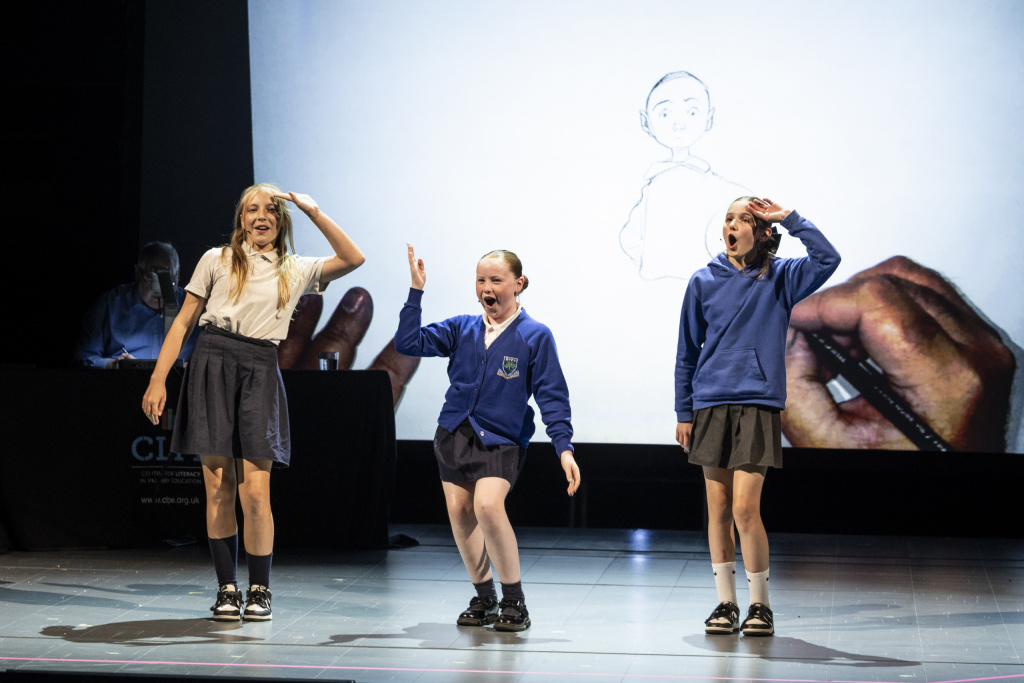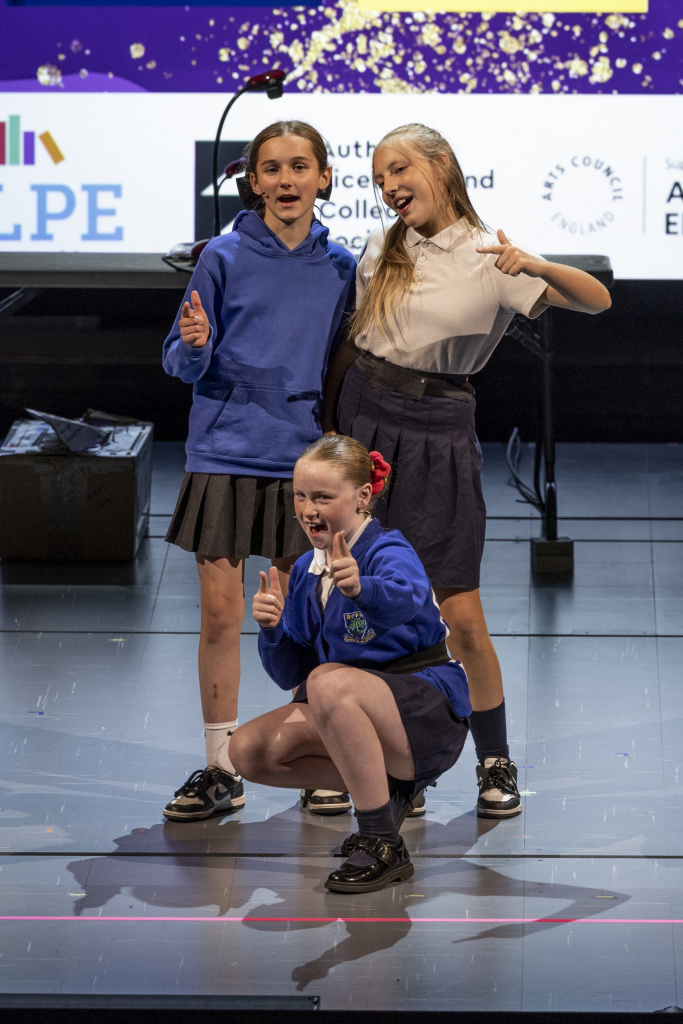
When I decided my Year 6 class would take part in the CLiPPA Shadowing Scheme this year, the impact on them turned out to be even greater than I had hoped.
Established by CLPE, the Centre for Literacy in Primary Education, the Shadowing Scheme encourages children to engage with the poetry books shortlisted for the CLiPPA (CLPE Poetry Award) by reading, performing, writing, listening to and responding to poetry. Schools choose a book from the five on the shortlist to explore in class. Teachers are supported to teach through the text with lesson plans and video resources provided by CLPE.
Students then select a poem that speaks to them, learn it by heart and coordinate a performance, which can be entered into the competition for the chance to perform on stage alongside the poets at the award show.
I chose ‘The Final Year‘ by Matt Goodfellow, which tells the story of Nate as he navigates Year 6 while coping with some tough issues at home, including potential tragedy when his little brother falls seriously ill. It’s set in East Manchester, a place Matt Goodfellow knows very well from his own childhood and years as a primary school teacher there, and the landscape he depicts is one that is also familiar to our students.
Things didn’t start well: when I introduced the book as narrative through poetry, the class response was, ‘Poetry is babyish, it’s just rhymes for little kids.’ I told them I would prove them wrong.

When we started reading The Final Year, their opinion changed. In fact, the kids were amazed: ‘This could genuinely be Birkenhead,’ they said. ‘This is what it’s like to grow up here and to be a part of Year 6 getting ready for high school.’
Matt chose to write the book in Nate’s (and his own) Manchester accent and dialect. That decision had a powerful effect on my class too, and on their own writing. ‘Wow, can you write like this?” they asked. ‘It sounds like us.’ I explained that poetry allows you to write what you want; the whole point of it is that it does sound like them, that there doesn’t need to be a checklist, a semicolon here and parentheses there and commas for clarity. I said, ‘I want your writing to be the most realistic form of you on a page that it can be.’ They really embraced that.
It was so empowering for them to express themselves as they speak, instead of conforming to the standard spoken English we are told to use, which almost alienates children in schools like ours in the North West of England, where we have a strong accent which is also a huge part of our identity.
We were absolutely thrilled when three of our students, Amelia, Faith and Daisy, won the CLiPPA Shadowing competition with their performance of ‘Ya need to be able to pin this down’, the opening poem in The Final Year. They worked so hard on creating their performance – they collected props, created their routine, and rehearsed together. It was powerful to see them come together over something that they bonded so strongly over, not only as this group of girls but as a class.
We were so proud to see Amelia, Faith and Daisy perform onstage at the National Theatre at the CLiPPA Poetry Award Show and the other children in the school were just made up for them. The fact that they were performing this poem made it even more important: they could identify with parts of the story, whether in their own lives or the lives of people that they knew, and that made it particularly powerful.
Matt came to our school earlier this year to run workshops. He said then that he sees it as his job to show teachers and children that their voice matters and that their experiences of life up to that point are valid – and that, should they choose to, they can use poetry as a way of expressing their own thoughts and feelings and ideas. But the last word should go to Faith, one of our Shadowing winners, who summed up the experience for us perfectly: ‘Poetry is important because it lets you speak freely in your own dialect and express feelings and emotions within your writing on a piece of paper.”
Laura Hulme is a teacher and English Lead at Devonshire Park Primary School in Birkenhead.
Register for free
No Credit Card required
- Register for free
- Free TeachingTimes Report every month